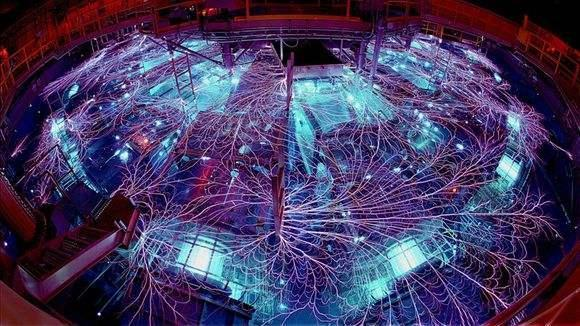Is nuclear fusion the only energy on earth that allows us to leave the galaxy?
If we don't use nuclear fusion very well, if we don't find a resource planet, build a Dyson ball, or find a stronger source of energy before consuming fusion energy, can we think we are trapped on Earth forever? So the strongest known is also the ultimate energy source, has it been intentionally protected to prepare for the development of human beings?
Nuclear fusion is a revolutionary energy technology that is currently known and expected to be mastered in the near future. Once the controllable nuclear fusion technology is mature, we can use it, for example, to generate electricity and use it as a power source for the spacecraft. It should be universal in the year. It can be seen that nuclear fusion should also be the only energy on earth that allows us to leave the solar system, but it is not absolute. Because in the field of new energy, there are potential energy sources, such as anti-matter promotion and speed-speed driving, which are all potential interstellar navigation technologies, but these technologies are too far away from us, even without a theoretical foundation.

At present, humans have not sent any man-made objects out of the solar system, and humans have not broken through the moon system. The main reason is that because of energy problems, humans still do not have effective energy for space navigation.
In dynamics, we use the specific impulse to measure the efficiency of the rocket engine. It is defined as the thrust generated by the rocket engine per unit mass of propellant per second, or the impulse generated per unit mass of propellant, in seconds. The higher the specific impulse, the higher the efficiency of the rocket engine. At present, the energy commonly used by humans in the aerospace industry is chemical fuel, but this is a very low-level energy source with very low energy release efficiency.

Rockets using chemical fuels are called chemical rockets and are classified into solid rockets and liquid rockets. The specific impulse of a solid rocket is 290 seconds, and the specific impulse of a liquid rocket is 300 to 453 seconds. On some spacecrafts, we also use nuclear power as an energy source. For example, the famous Traveler One uses nuclear batteries as an energy source. At present, the nuclear energy used by humans is the energy produced by nuclear fission. This energy is higher than that of chemical fuel, and the specific impulse can reach several thousand seconds. However, nuclear fission rockets have less thrust and are only suitable for unmanned long-range spacecraft.

Nuclear fusion is a new type of energy that humans may have in the near future. Compared to nuclear fission, nuclear fusion is more efficient. At present, it takes four years for humans to travel to Mars, and if they use nuclear fusion rockets, they will be shortened to about two months. Compared with anti-material engines, curvature engines and other more "sci-fi" technologies, nuclear fusion has a solid theoretical foundation. Although there are still some technical problems, it is the most promising new energy source.
To the question in your title, my Magic 8-Ball says:
Hi! I'm a bot, and this answer was posted automatically. Check this post out for more information.